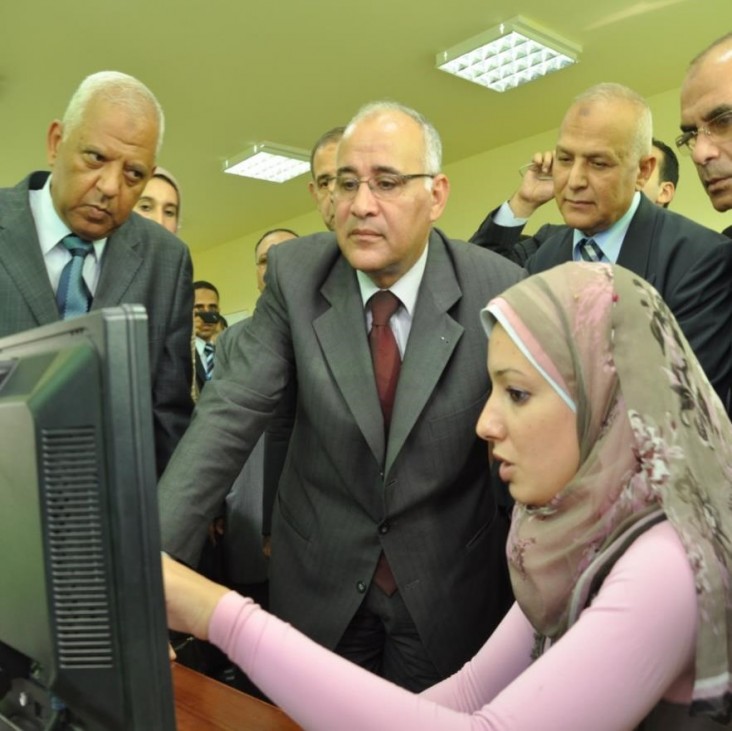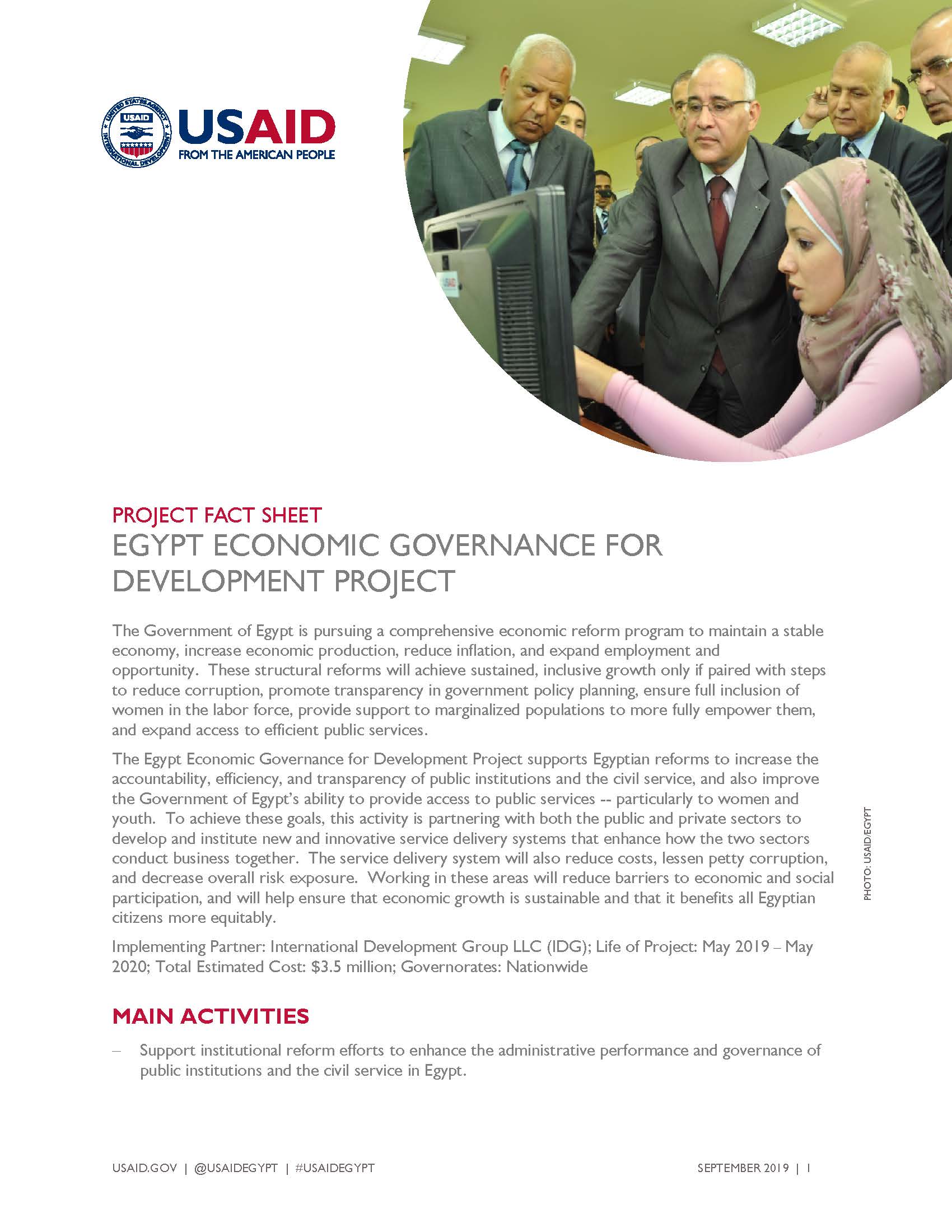Speeches Shim

The Government of Egypt is pursuing a comprehensive economic reform program to maintain a stable economy, increase economic production, reduce inflation, and expand employment and opportunity. These structural reforms will achieve sustained, inclusive growth only if paired with steps to reduce corruption, promote transparency in government policy planning, ensure full inclusion of women in the labor force, provide support to marginalized populations to more fully empower them, and expand access to efficient public services.
The Egypt Economic Governance for Development Project supports Egyptian reforms to increase the accountability, efficiency, and transparency of public institutions and the civil service, and also improve the Government of Egypt’s ability to provide access to public services -- particularly to women and youth. To achieve these goals, this activity is partnering with both the public and private sectors to develop and institute new and innovative service delivery systems that enhance how the two sectors conduct business together. The service delivery system will also reduce costs, lessen petty corruption, and decrease overall risk exposure. Working in these areas will reduce barriers to economic and social participation, and will help ensure that economic growth is sustainable and that it benefits all Egyptian citizens more equitably.
Implementing Partner: International Development Group LLC (IDG); Life of Project: May 2019 – May 2020; Total Estimated Cost: $3.5 million; Governorates: Nationwide
MAIN ACTIVITIES
- Support institutional reform efforts to enhance the administrative performance and governance of public institutions and the civil service in Egypt
- Improve the capacity of Egypt’s civil service by emphasizing workplace principles of transparency and integrity
- Upgrade public e-services to improve services provided to Egyptian investors and citizens by introducing service delivery automation models and applications
EXPECTED RESULTS
- Institutionalize and utilize a government-wide performance management system in Egypt’s public institutions
- Improve the quality and management of nationwide economic governance-related indicators
- Offer and institutionalize updated and current anti-corruption training to Egypt’s civil service to improve the capability to identify, report, and curb corruption
- Improve the capacity among select Egyptian government ministries to conduct audits
- Develop and implement new and innovative service delivery models to enhance how public institutions in Egypt conduct business with the private sector



Comment
Make a general inquiry or suggest an improvement.